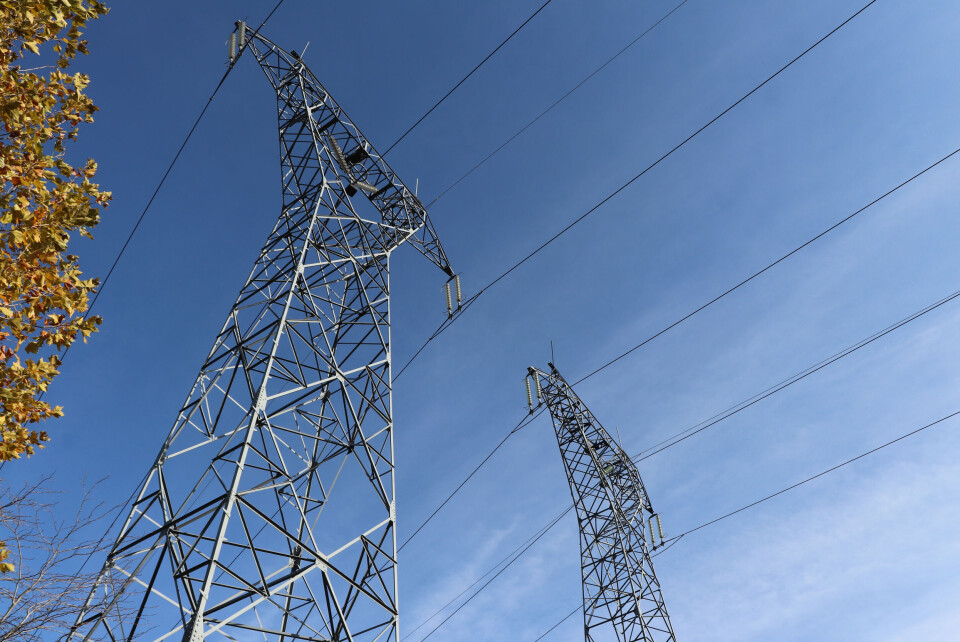-
Loire Valley Sancerre vineyard boosted by Taylor Swift documentary cameo
Disney+ documentary puts family vineyard in the international spotlight
-
39 bombs wash up on Gironde beach following World War Two bunker collapse
Shells were defused by experts but prefects warn others may remain
-
French airports request EES rollout suspension this summer
Risk of congestion feared if April full deployment of system for all eligible passengers takes place
EDF to sell more cheap electricity to competitors to keep prices low
The measure is expected to benefit customers of other companies as well as helping to keep EDF’s regulated rate down despite steep hikes in the European market generally

The government has confirmed that the country’s largest electricity supplier EDF will this year have to sell more electricity to alternative firms at cheaper-than-market prices to help combat price rises for customers.
Under the low price measures, EDF will have to sell up to 40% of the electricity it produces in 2022 at cut prices, estimated to result in a loss of €8billion for the company, which already faces a €42billion debt.
EDF, which produces electricity in France’s nuclear power stations, as well as supplying it, has always, since the opening up of the electricity market, been obliged to sell a certain proportion to alternative firms at a low rate, to avoid them having to buy too much energy on the european wholesale markets, where prices are currently soaring.
This year it will have to sell 20% more, though at a slightly increased price, it has been agreed.
Consumer body CLCV told The Connexion the measure will also have a knock-on effect of helping keep EDF’s regulated tariff low, with a promised annual rise of no more than 4% next month. Another measure aimed at this is the removal of a certain tax on electricity.
Read more: Regulated prices keep France's electricity cheaper than neighbour's
If prices had been left to rise without any intervention the increase in the regulated rate, used by some 23 million households, could have reached 46%, according to energy regulator CRE.
CLCV leader François Carlier said: “If the alternative companies can’t obtain enough nuclear electricity, they will have extra costs. Linked to European competition rules, if they have extra costs to bear, and have to increase their tariffs, then it is necessary to increase the regulated tariff as well so there remains viable competition in the market.
“If they do not have extra costs to pass on, in turn there is no need to factor this into the regulated price.”
Now that the expansion of EDF’s cheaper wholesale tariffs has been confirmed, it will be up to other suppliers to make sure that consumers benefit.
The government has stated it will be looking to make sure they do. Ecology Minister Barbara Pompili is to meet with all electricity suppliers, to ask them to promise to pass the benefit on.
“The nature of competition means that [the cheaper rates] will have to reach consumers,” Naima Idir, president of the Association nationale des opérateurs détaillants en énergie, told BFMTV.
“Firms which do not adjust their rates will have less competitive offers and so their customers will move to a different supplier.”
Some ‘alternative’ firms’ rates are tied to regulated rate
Alternative electricity firms, which supply approximately 30% of customers,in some cases also have contractual agreements with customers on certain of their offers to index their tariffs to the regulated rate. The latter is set by the economy and energy ministries and the Commission de régulation de l’énergie (CRE), an independent body responsible for overseeing France’s electricity and gas markets.
So, by maintaining its promise to keep the regulated electricity tariff to no more than 4% in February, the government will also prevent these indexed prices from rising above that amount.
CLCV says the French government’s efforts to control price rises have meant that residents are better protected here than they are in neighbouring countries.
Mr Carlier, told The Connexion other countries do not have a comparable system of state regulated tariffs, meaning that consumers there are more heavily exposed to market fluctuations.
“France, in keeping this regulated tariff and having 75% of [its own] nuclear energy, really stands out in Europe,” he said.
The additional obligation on EDF to sell more cheap energy has however been criticised by the French Senate’s Commission des affaires économiques, which has said that the measures will “severely weaken” the company, which “must find a way to finance these artificially low prices.”
Previous articles
France brings in ‘price protection’ measures amid soaring energy rates
Household bills soar by €64 a month in a year, new French study shows
Cut energy and water bills by €200 with website tips in France
























